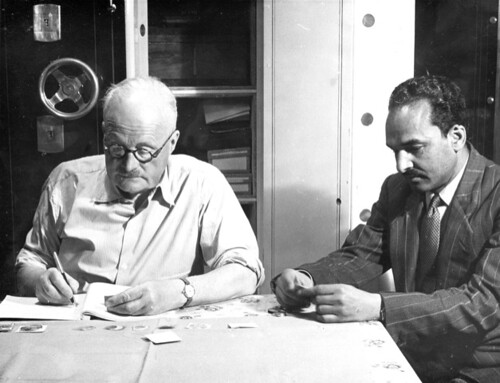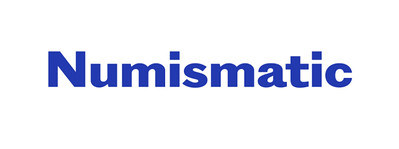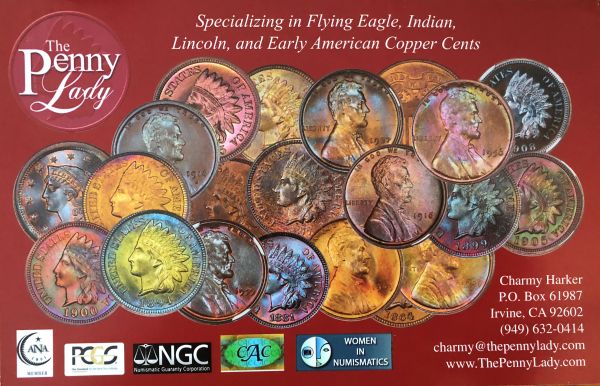
PREV ARTICLE
NEXT ARTICLE
FULL ISSUE
PREV FULL ISSUE
NOTES FROM E-SYLUM READERS: JUNE 30, 2024
The Collector's Disposition Dilemma Last week Pete Smith discussed his extensive collection of A.M. Smith material, and sought advice from readers on how to dispose of such a specialized, local collection. -Editor B.J. Herbison writes: "I would first visit the Hennepin County Museum to see if a display case dedicated to Smith would fit in the museum. Then offer to give the items (or portion) to the museum if they create a permanent display case dedicated Smith. Offer to curate the case (but give them many items in addition to the items in the case). Make a financial contribution to go along with the item donation (the cost would be much less valuable than the time you have already invested). "You only mentioned one museum, but I would look again for other museums or historical societies. Did Smith spend any period of time in other areas? Look there as well. "In addition to museums, make similar offers to libraries in the area (since there is a book connection) or even town halls or schools -- they sometimes have displays. "Did A.M. Smith have any descendants? I agree that the youngest might not be ready to take on a collection, but if you find a descendant with another type of collection they have the collectors bug and might be interested in including your Smith collection. "If the collection does get split up, donating some of the items to the descendants would probably be appreciated. "I wish you well in finding a satisfying distribution."
To read the earlier E-Sylum article, see:
Cataloging the Farouk Sale "The Stack's comments on the Farouk sale don't quite ring true. I have been in touch with Edward Baldwin and have more or less got to the bottom of it all. "John Synge was Sotheby's coordinator in Cairo, responsible for organisation and logistics. He was no longer on the staff when I joined Sotheby's in October 1963. Edward Baldwin has copies of letters to him in Cairo from his father, Albert Baldwin, in London, relating to printing and photography. He wasn't a coin man at all. The coins etc were catalogued by Fred and Albert Baldwin. Fred started off but fell behind schedule due to the sheer quantity of the collection and the discomfort of working in the unairconditioned strong room in the Koubbeh Palace, so Albert went to help him out. "Edward Baldwin did a little Google research, which has turned up the following scenario for this distortion of the facts. The story seems to have started with Time magazine, which told of John Synge's eleven months in Cairo sorting Farouk's "gimmicks". Stacks picked up on this and being coin people assumed all the "gimmicks" were coins. People forget there were four Sotheby catalogues for Farouk, including gold and silverware, paperweights and Galle glass as well as Objets de Vertu. Of course, Farouk's name doesn't appear on any of them. "It should never be forgotten that up until 1968, Baldwin's were Sotheby's appointed coin and medal specialists. For the Farouk sale the Sotheby director they reported to was Tim Clarke. "The catalogues were printed by Pardy's, who, of course, are still printing coin catalogues. The gravure plates were by the Chiswick Press. Interestingly a 5% surcharge was applied to all invoices - certainly the first outing of the buyer's premium by a British auction house."
Great photo. Thank you. -Editor
To read the earlier E-Sylum article, see:
Word of the Day: Numismatic Bill Rosenblum passed along this Word of the Day for June 25th from the Word Daily newsletter. Thanks. -Editor
WORD ORIGIN
WHY THIS WORD?
To read the complete article, see:
More on William Bogle "I discovered that William Bogle was the father of Major Archibald Bogle who commanded the 35th US Colored Troops in the Civil War. Major Bogle was wounded and spent time in Andersonville. There is a lot about him online. "William Bogle was "known to fame as the proprietor of 'Bogle's Magic Hair Dye'," and a contemporary wrote that Bogle "always used the stuff on his moustache and hair, and kept them in shape if his person was otherwise seedy."
Links:
Interesting - thank you. -Editor
To read the earlier E-Sylum article, see:
Wayne Homren, Editor The Numismatic Bibliomania Society is a non-profit organization promoting numismatic literature. See our web site at coinbooks.org. To submit items for publication in The E-Sylum, write to the Editor at this address: whomren@gmail.com To subscribe go to: https://my.binhost.com/lists/listinfo/esylum All Rights Reserved. NBS Home Page Contact the NBS webmaster 
|




